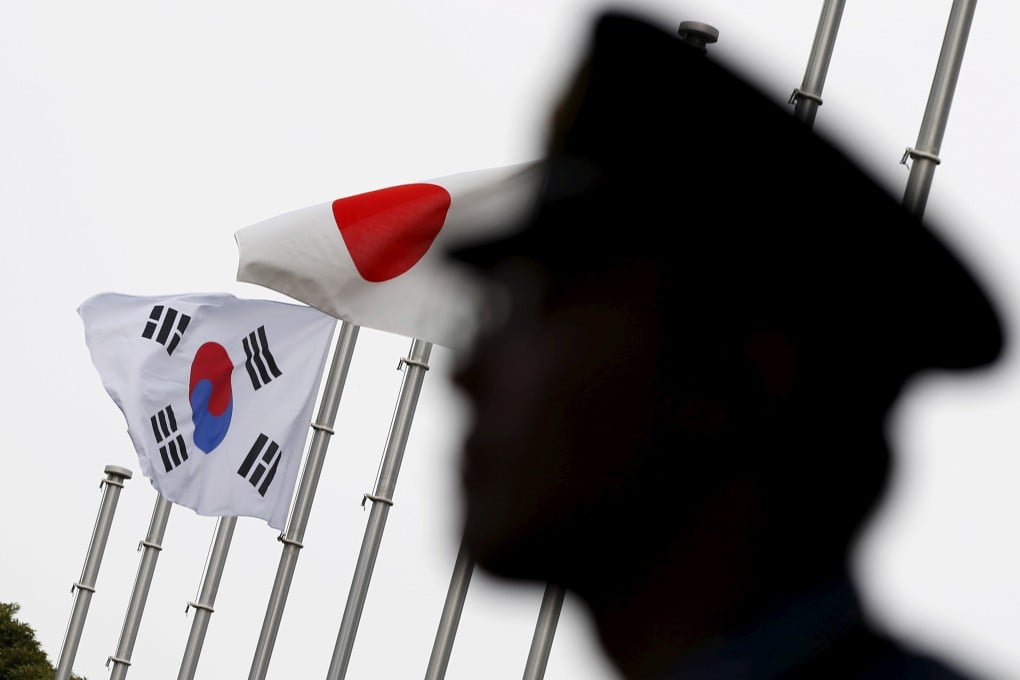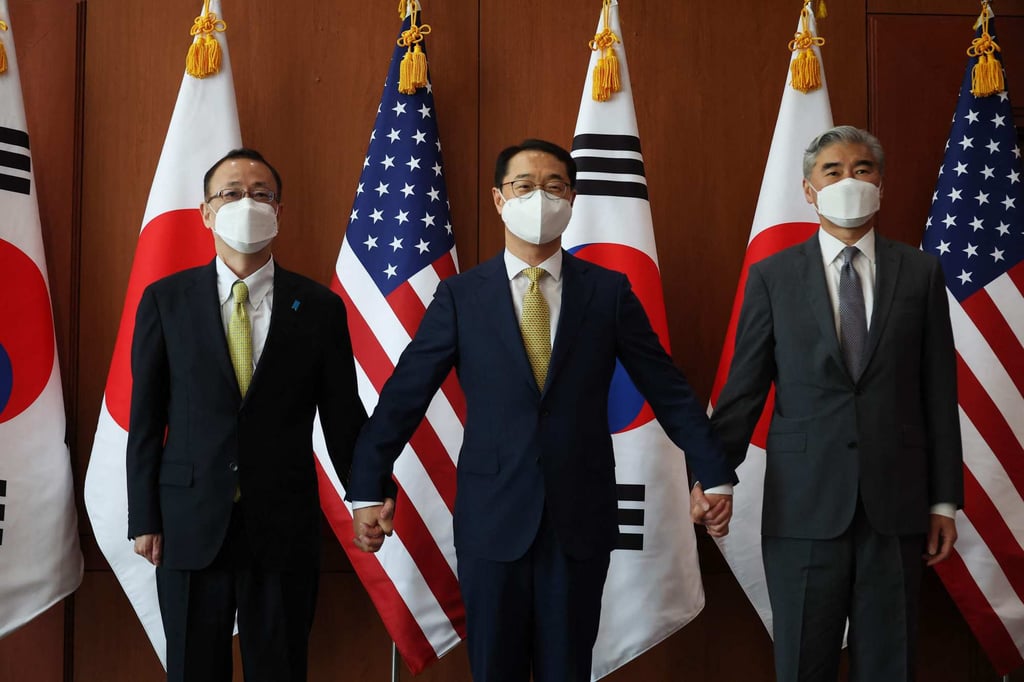Advertisement
South Korea, Japan set for first high-level defence talks in 6 years, with assertive China, nuclear North Korea on agenda
- Defence talks could be precursor to potential bilateral summit between Japanese PM Fumio Kishida and South Korean President Yoon Suk-yeol
- Seoul and Tokyo are under pressure to pursue a mutual understanding as they face common concerns over China’s assertiveness
Reading Time:3 minutes
Why you can trust SCMP

There are indications that the previously icy diplomatic relationship between Japan and South Korea may be thawing – although analysts point out that hurdles still need to be overcome if the nations are to put history in the past and build more collaborative and lasting ties.
The two nations’ vice-ministers of defence will on Wednesday hold the first face-to-face talks in more than six years to discuss a number of thorny issues, not least of which is Tokyo’s claim that a South Korean warship locked its fire radar onto a Japanese reconnaissance aircraft over disputed islands in the Sea of Japan in 2018.
Other issues on the agenda for Masami Oka, Japan’s vice-minister of defence for international affairs, and Vice-Defence Minister Shin Beom-chul in Seoul will include security cooperation at a time of rising military tensions in northeast Asia. Two of the most pressing shared challenges are the unpredictable and nuclear-armed North Korea and an increasingly belligerent China.
Advertisement
The discussions take place after Kim Gunn, Seoul’s special representative for Korean peninsula peace and security affairs, holds talks in Tokyo with Takehiro Funakoshi, head of Asian affairs at Japan’s foreign ministry, and Sung Kim, Washington’s special representative for North Korea.

Discussions will be focused on a united front on Pyongyang and “all necessary action to address the threat Pyongyang poses to the United States and our allies,” the US State Department said in a press release.
Advertisement
Advertisement
Select Voice
Select Speed
1.00x